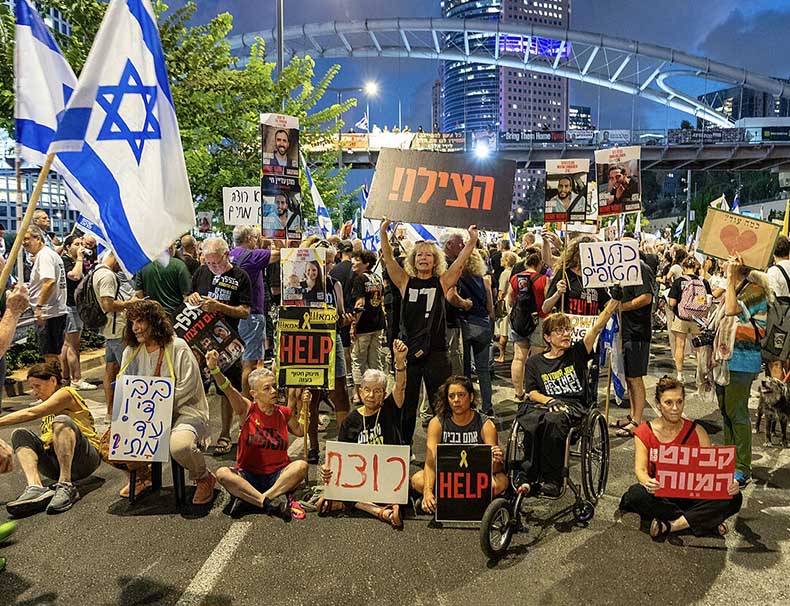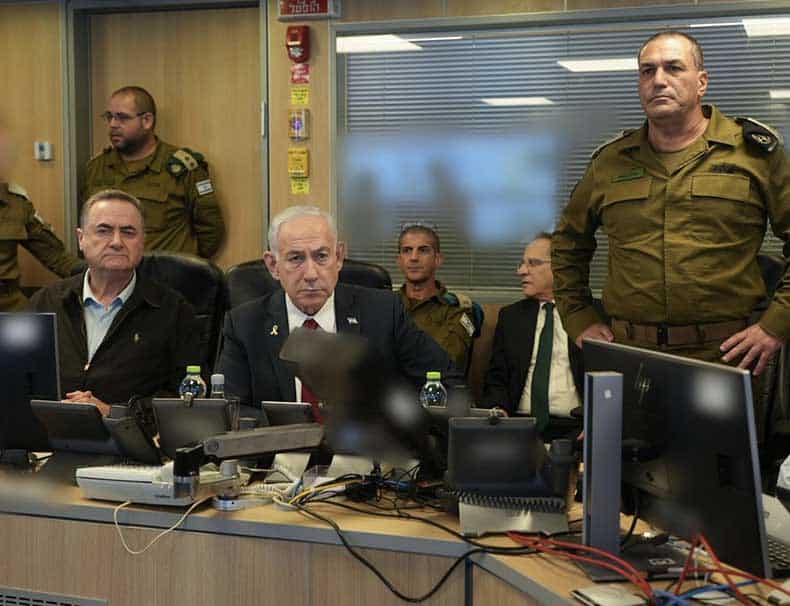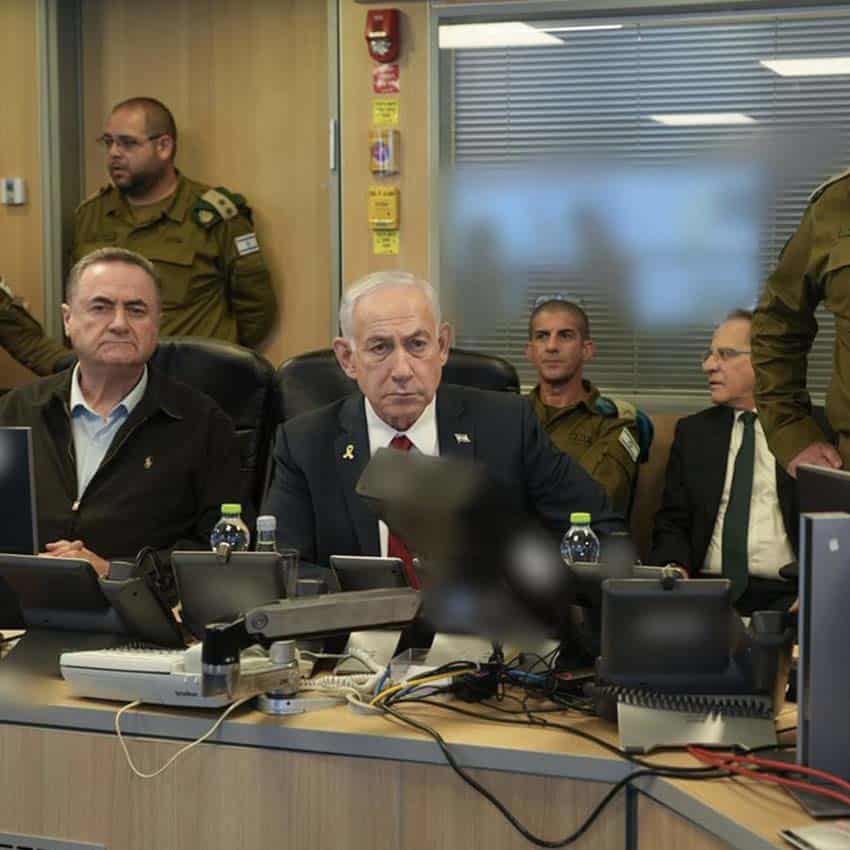In recent days, Israeli public opinion has been shaken by the heartfelt post published by Anat Angrest, mother of the hostage Matan Angrest, in which she described the message she received from an intelligence officer in the Hostage Directorate. According to her post, the officer told her that:
“The risk (to Matan’s life – K.M.) has already increased in recent days as a result of the IDF’s activities before the maneuver, and it is on a trend of increasing danger with the escalation of the maneuver, that’s what it means. This is true for everyone held in this brigade’s sector (referring to the hostages located in the area of operations of that brigade).”
It is impossible not to share in the terrible pain of the Angrest family, as well as that of all the other hostage families. The heart bleeds, and the depth of their distress sears the soul, and it is clear that the officer’s choice of words only poured fuel on a fire that has been burning for nearly two years. Yet beyond the clumsy, foolish, and even cruel phrasing of the message about the hostages, it is difficult to escape the impression that something even more serious is at play. The assumption is that the officer was not speaking from personal emotion, but instead relayed a message carefully crafted by his superiors, who were undoubtedly aware of its implications—especially once it became public.
The Goal: Shaping Public Discourse
The message, as worded, reflects a confrontational stance by the military echelon toward the political echelon. Assuming that those who conveyed it knew it would inevitably reach the public, they also surely knew what the reaction would be—especially among the hostage families and their circles of support. The sharp public response was intended to stir an outcry and create significant pressure on the political leadership, which had not accepted the military’s position regarding the capture of Gaza City and had instead instructed continued preparations toward such an operation.
The message about the risk to the hostages resulting from a broad military maneuver directly and clearly echoed the Chief of Staff’s position, as presented to the political echelon and also leaked to the public. A military echelon acting out of shared responsibility, internalizing the meaning of obedience to the elected civilian leadership and its absolute authority to set strategic ends, would not have acted in such a defiant and confrontational manner. The message should have been phrased entirely differently—aligned with the stance of the political leadership.
The family should have been told that the IDF is preparing to capture Gaza City and increasing military pressure on Hamas to secure the release of as many hostages as possible, as quickly as possible—emphasizing that their release is a supreme objective for the army, which will do everything in its power to prevent harm to them. It should also have been stressed that the very preparations for capturing Gaza are expected to push Hamas back to the negotiating table and force it to release the hostages, potentially making the maneuver unnecessary. Finally, it should have been underscored that capturing Gaza City is a last resort, undertaken only after all other options have failed, with the explicit purpose of freeing the hostages, whose safety is at the forefront of every IDF commander’s mind. Yes—this involves risk. But the alternative—allowing Hamas to continue toying with Israel and the mediators, stalling and deceiving—is no less grave a risk to the hostages’ lives.

The Danger of Deepening the Crisis of Trust
This is not a matter of etiquette. The wording of the message carries enormous weight—emotionally and psychologically for the hostage families, and in terms of the military echelon’s shared responsibility to act in the name of the government and in accordance with its decisions. The chosen wording cannot be dismissed as a “slip” or an innocent mistake. It is another example of very problematic and dangerous conduct by the military echelon, whose consequences could prove far-reaching, deepening the crisis of trust with the political leadership, which will inevitably seep into the wider public and erode the foundations of social and national resilience.
Broad segments of Israeli society support the hostages’ families’ protest. Several organizations have rallied behind them, providing support through rallies, events, resources, and messaging. Some of these organizations are driven by deep dedication and loyalty to the families and the cause of freeing their loved ones. Others, however, are “riding” the wave of distress and protest to advance their own political goals—raising doubts as to whether their actions truly benefit the families or the central mission guiding them.
Those seeking political gains quickly seized on the IDF officer’s message to the Angrest family, exploiting it for their own purposes, perhaps without fully grasping its more profound implications. In a democracy, the political echelon holds the authority and responsibility to define and determine the strategic ends and objectives of war, as well as those beyond it. In discussions, the military echelon must present openly and honestly its insights about the military—and even other—implications as it understands them, regarding the courses of action dictated by the political echelon. The political echelon, in turn, must weigh these inputs alongside the broadest possible range of considerations, not all of which are visible to the military or within its responsibility.
Once a decision is made, it is the military’s duty—out of shared responsibility and under the binding rules of a democratic state—to salute and harness all its professional capabilities to carry out a course of action that serves the strategic purpose set by the political leadership. The latter, for its part, must back the military’s actions and see itself as jointly responsible for the outcomes.
It is crucial to emphasize: in a democracy, the political echelon has the prerogative to err. The only body entitled to punish it for mistakes is the public at the ballot box on election day. The army is not the guardian of Israeli democracy and is not authorized to protect the public from decisions of the political leadership, even if it views them as wrong. Any attempt to legitimize confrontational military conduct—such as in this case, by those opposing the government’s decision—normalizes a dangerous reality and lays the groundwork for repetition. Suppose the army acts confrontationally toward an elected government on one issue today, tomorrow, when others replace the government and senior officers with different agendas. In that case, the tables will turn—and a perilous norm will have been entrenched.








